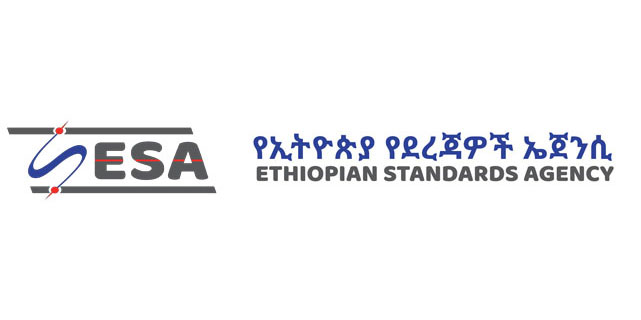
Fortune News | Mar 07,2020
Apr 25 , 2020
By HAGOS GEBREAMLAK ( FORTUNE STAFF WRITER )
The federal agency that oversees small and medium enterprises has asked for a three billion Birr bailout from the government to rescue the businesses endangered by the economic recession caused by the global outbreak of Novel Coronavirus (COVID-19).
The Federal Small & Medium Manufacturing Industry Development Agency submitted a proposal on Monday, April 20, 2020, to the Ministry of Trade & Industry calling for support. The ministries of Revenues and Finance were copied in the proposal.
It requested that the Ministry and other government institutions provide these businesses with liquidity cash, create market value chains, reschedule their loans, give them tax relief, exempt them from interest on loans, and provide the enterprises with raw materials.
The document was prepared by a nine-member technical committee, which was formed following a request from the businesses calling for the government's intervention in the case.
Members of the committee are representatives from the ministries of Trade & Industry as well as Finance, the Job Creation Commission, the Development Bank of Ethiopia, and small and medium businesses. The committee assessed the effect of the pandemic on these businesses and tabled technical and financial recommendations.
The sector, which is comprised of over 18,800 small and medium manufacturing businesses, is suffering from the pandemic as demand for products has sharply declined, according to Ashenafi Melese, communications director at the Agency.
Manufacturers of wood and furniture, metal, leather, and other business that supply construction inputs contribute 6.6pc to the GDP but are collapsing because of the declining worldwide economy, according to the document.
The study also recommended that businesses temporarily divert their efforts to the production of food, masks, detergents and sanitation-related commodities. It also suggested that the government support them by allowing them to stock their products in government facilities, purchase and use their products, facilitate online or e-commerce sales for their commodities, and provide them with raw materials and advanced technology.
The hotel industry has been already suffering for the past four years due to civil unrest in the country, according to Fitih Weldesenbet, president of the Ethiopian Hotel & Related Service Providers Employers’ Federation.
“There's also a drought of cash and the burden of debt, which makes the situation difficult to sustain in the business arena,” said Fitih.
Following the lockdown of the hospitality industry, the Federation is asking the ministries of Culture & Tourism and Finance for incentives and technical support, according to Fitih.
“We ask that the government provide a one-year suspension of interest charges on loans, tax relief, and an extension of debt payments to 30 years, as well as periodical duty-free trade,” said Fitih.
The sector, which registered 15 to 18 billion Br in capital and employs around 450,000 people is faced with an overwhelming financial problem, according to Getachew Haile, president of the Ethiopian Micro, Small & Medium Enterprise Employers’ Federation.
“Most of the enterprises don’t have cash on hand, because every cent has been invested and returns are yet to come,” Getachew told Fortune.
Getachew also explained that small-scale enterprises were receiving projects from the government, but that stops after they are upgraded to medium-business status.
Due to a lack of finance, most of the enterprises are not producing commodities, especially the ones at the medium scale, according to him.
The Federation, which has 12,500 member enterprises, wrote a letter to the Agency, Job Creation Commission, and Ministry of Finance requesting low interest rate loans from banks and microfinance institutions, as well as a stimulus package, provision of sheds, tax relief for a year, and loan rescheduling.
After reviewing the proposal from the Agency, the Ministry of Trade & Industry sent the policy recommendation to the macroeconomic team led by Prime Minister Abiy Ahmed (PhD) for approval, according to Teka Gebreyesus, state minister for Trade & Industry, which has also organised an operational committee to assist the sector.
“After the macroeconomic team decides on the issue," said Teka, "the operational committee will supervise the execution of the proposal."
Small and medium enterprises represent about 90pc of businesses and more than 50pc of employment worldwide, according to the World Bank Group.
“Even if it is too early to quantify, after two or three months the effect of the pandemic on the economy will certainly be severe,” Teka said.
The small and medium enterprises play a significant role in the economy through revenue generation, job creation, technology transfer, productivity, market linkages, proper utilization of resources, and equal distribution of wealth, according to Tadesse Getachew, an economics lecturer at Addis Abeba University.
“Hence the sector needs credit services, including extended loans, consultancy and training support, internal and external market linkages, provision of working premises for a minimum rental fee to undertake their production activities and one-stop-centre support,” recommended Tadesse.
PUBLISHED ON
Apr 25,2020 [ VOL
21 , NO
1043]

Fortune News | Mar 07,2020

Fortune News | Mar 12,2022

Radar | Oct 31,2022

Radar | Apr 27,2025

Radar | Sep 27,2020

Fortune News | May 18,2019

Radar | Jan 22,2022

Sunday with Eden | Feb 23,2019

Radar | Jun 24,2023

Radar | Jul 24,2021

Dec 22 , 2024 . By TIZITA SHEWAFERAW
Charged with transforming colossal state-owned enterprises into modern and competitiv...

Aug 18 , 2024 . By AKSAH ITALO
Although predictable Yonas Zerihun's job in the ride-hailing service is not immune to...

Jul 28 , 2024 . By TIZITA SHEWAFERAW
Unhabitual, perhaps too many, Samuel Gebreyohannes, 38, used to occasionally enjoy a couple of beers at breakfast. However, he recently swit...

Jul 13 , 2024 . By AKSAH ITALO
Investors who rely on tractors, trucks, and field vehicles for commuting, transporting commodities, and f...

Oct 11 , 2025
Ladislas Farago, a roving Associated Press (AP) correspondent, arrived in Ethiopia in...

Oct 4 , 2025
Eyob Tekalegn (PhD) had been in the Governor's chair for only weeks when, on Septembe...

Sep 27 , 2025
Four years into an experiment with “shock therapy” in education, the national moo...

Sep 20 , 2025
Getachew Reda's return to the national stage was always going to stir attention. Once...